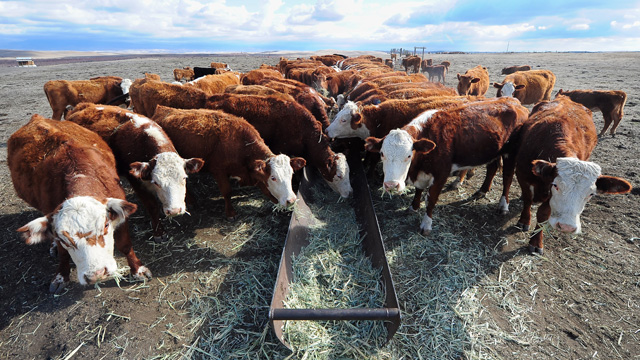http://www.kqed.org/.stream/anon/radio/tcrmag/2014/02/2014-02-21d-tcrmag.mp3
After one of the biggest beef recalls in history, a Petaluma meat processor is getting bought out. Earlier this month, the USDA recalled nearly 9 million pounds of beef from Rancho Feeding Corporation. More than 1,600 food distributors in the U.S. and Canada are asking consumers to return products from beef jerky to Hot Pockets. There wasn't a lot of explanation as to why, other than to say diseased cows were processed without the requisite federal supervision. But the recall and the slaughterhouse's closure put Northern California ranchers and dairy farmers in a bind. We talk with KQED reporter Mina Kim who has been following the story.
RACHAEL MYROW: So, tell us about this recall.
MINA KIM: So, Rancho processes both older dairy cows and these higher-end meats, sort of these pasture -raised beef cattle. And initially, back in January, 40,000 pounds of beef was affected. So we’re talking about a handful of stores. Then, two weeks ago, this recall expands to 9 million -- nearly 9 million -- pounds of beef processed over the course of an entire year. And so, as you can imagine, the number of stores affected has grown exponentially. We’re talking now about more than 1,500 distributors, both in the U.S. and in Canada. Nestle Hot Pockets were made with some meat that was processed at Rancho. And as a result, stores like Wal-Mart are having to pull Hot Pockets from their shelves as well as things like beef jerky, hamburger patties and taquitos.
MYROW: Now we should point out that there are no reported illnesses linked to Rancho’s meat, but the USDA is conducting two investigations, including one by its Office of Inspector General, and that’s not something that happens a lot in the meat industry.
